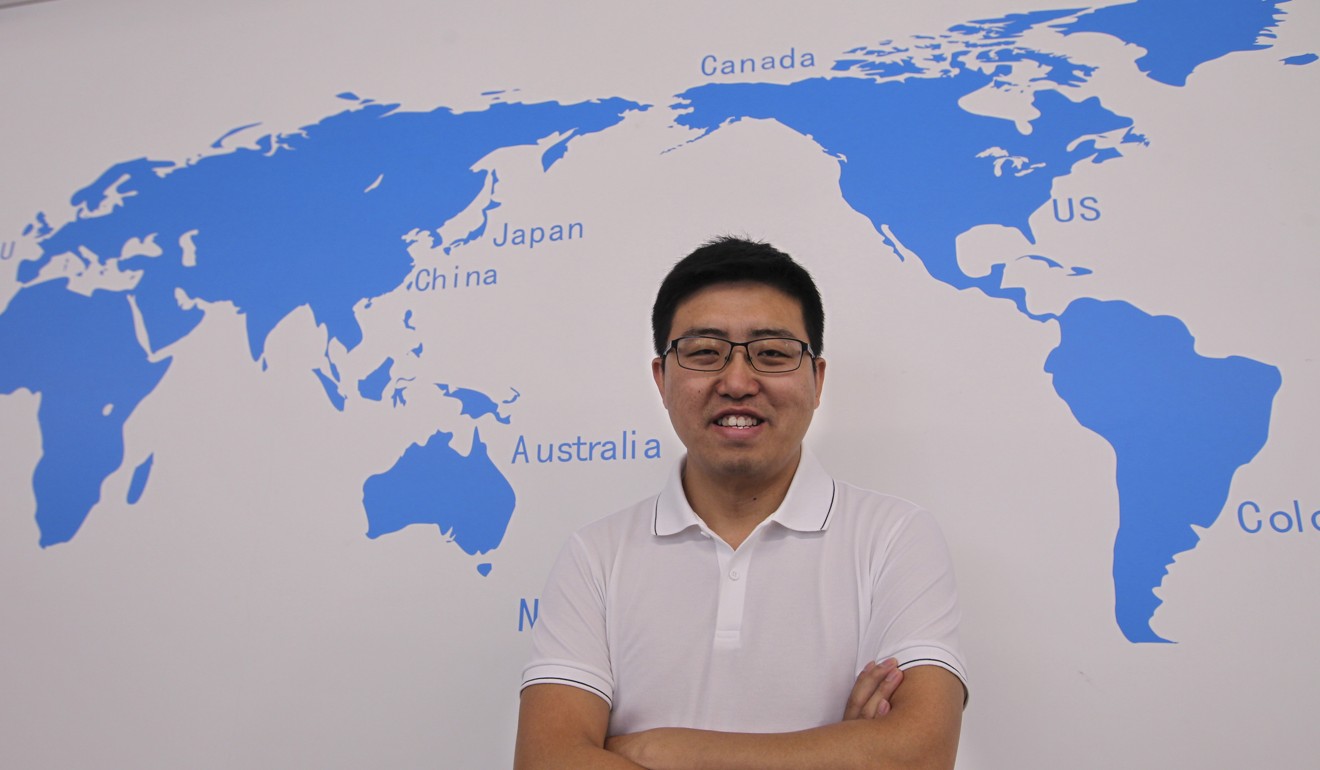
Uoolu founder envisions ‘asset manager’ role in helping China’s millennials buy overseas homes
Huang Xiaodan, 34, founded the real estate app Uoolu two years ago as a way to enable those who have prospered in China’s new economy to purchase overseas homes. Since launching, the app has become popular, drawing around 800,000 to 1 million average monthly unique users, many of whom are millennials drawn from across a wide range of mainland Chinese cities.
Huang, a Beijinger, says the app goes beyond a traditional listing service to act as an asset manager, helping to match buyers with overseas homes while also providing financial services to facilitate the transaction.

Huang worked previously as general manager of New York-listed Fang Holdings. As one of the youngest executives in the group, he helped the company grow into a real estate service portal in China with annual revenue of US$1 billion. Huang departed the company in 2014 to launch his own business. Huang is chief executive at Uoolu.
How do you plan to expand the home inventory in your app?
I don’t think Chinese customers care too much about the number of homes available in websites. What they care is the quality. A majority of Uoolu’s customers are investors who seek global asset allocation. They don’t buy the homes to live in, or for immigration, but to lease. This means they care about the quality, and the rental yield.
To cater to this demand, we build an asset evaluation system, under which we help our customers vet overseas homes. We first vet them based on a developers’ profile, track record and local-market certificates, before looking further into the project’s quality and pricing.
We believe the era of mass listing services is over. Simply putting out home information is useless. What customers lack is safety. In planning the app we set out to reduce information asymmetry.
So you mean the mainstream listing websites are out of date?
Many listing websites are leftovers from the last century. They are doing “classified advertisements” business. What we are doing is totally different. We help our clients to build their standards, to ensure safety, to complete the whole transaction, including loans and asset trust services. In other words, we are an asset manager to our clients.
Eighty per cent of your monthly active users are between the ages of 20 and 39, a group known in the West as millennials. Do you set out to target this group?
We set out to serve China’s “new middle class”. The internet boomed in China thanks to people born after 1980, and it is this group that has started to buy things online.
So in the beginning, we wanted to serve the middle class who are internet-savvy. They are broad sighted, discovering new things far earlier than older generation. Second, they dare to try new things. They make decisions quickly.
For example, they could buy an apartment in Bangkok after just one trip there. Third, they derive their wealth from China’s new economy, such as technology and finance, and their wealth is several times that of the older generation. There are estimates that China’s new middle class numbers 6 to 7 million, but my business suggest that’s an underestimation.
This demographic has good English-speaking skills and international experience. Can’t they just go directly to overseas developers and agents?
That depends on the customer niche. Even for overseas home purchases, there are a variety of demands. These range from senior living, to overseas studies, immigration and investment.
Our niche is investment. For this group, they can’t go to every project, talk to every developer and agent. They are thinking: “Should I invest in Tokyo or Bangkok?” If in Bangkok, which district is better? Which has a higher rental yield? So, Uoolu is a natural choice for them.
This group knows the importance of buying property. Many became rich just because of property investment, so they tend to buy more. They share the belief that in China, homes could translate into money, but money cannot necessarily translate to homes [as home prices surge all the time]. I think rental income is just part of the justification. Another important drive is a great sense of psychological reassurance.
Another interesting trend is that Chinese buy overseas properties at a younger age, and much more quickly. Many don’t consult with offline agents, and don’t go to the city before making an investment. And they are not just from China’s biggest cities, but from all tiers of cities.
What effects do you expect from the government’s capital controls?
I don’t think overseas home investment has anything to do with capital controls. We believe global asset allocation is a natural result when average income has climbed to this level along with economic growth, and the emergence of a new middle class.
You just finished A-round financing. How do you, as an entrepreneur, see the role of financing?
First, we don’t raise funds for the sake of raising funds. That’s dangerous. Setting a goal of raising how much money is a sign of immaturity. We don’t burn cash, as many internet start-ups do. We are very cost conscious. When you do your job well, investors will come to you. But when you did poorly, you are worthless.
Another important thing, which I learned from experience in Fang [Holdings], is that many start-ups failed to recognise the importance of cash flow management. Many don’t know this is a life-saving matter so when problems come up, they have no ammunition and quickly die.

